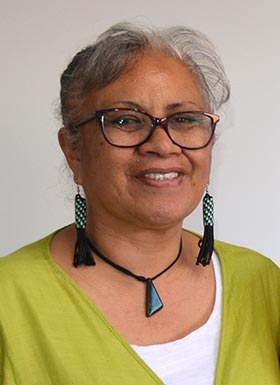
Tumu whakarae Titihuia Pakeho, returning after standing unopposed in September’s election, has warned that nurses are at risk of becoming overrun by red tape and paper work.
Pakeho is a registered nurse at Tauranga Hospital in the nation’s only kaupapa ward, and is a supporter of Māori health and the Māori health workforce.
Speaking about the challenges facing nurses in Aotearoa in the new term, she said the weight of too much policy-making meant nurses had more paperwork and less time to care for patients.
She said nurse training needed to include more hands-on experience in hospitals, from the very first year of study.
“Too many nurses are coming out with a lot of new research and knowledge which is great, but they don’t have the hands-on experience and they don’t have communications skills to build a rapport with patients.”
This lack of hands-on training also meant fresh graduates did not yet have the holistic approach needed for patients – “especially the Māori health model of wairua, hinengaro, tinana, whānau”. A greater understanding of Māoritanga was needed, she said.
Not enough Māori nurses
Pakeho joins kaiwhakahaere Kerri Nuku – also returning unopposed – as the leaders of Te Poari, part of NZNO’s bicultural co-governance.
Pakeho said looking ahead, there were not enough Māori nurses yet, to nurture a strong Māori workforce “that can lead us into the future”.
“We have many student nurses who are coming through which is great but that takes time to get them to where they want to or should be.”
Pakeho said more kaupapa wards were needed around Aotearoa – not just one in the entire country.
“Then our Māori nurses will have a supportive environment to work alongside other Māori nurses.”
She said she had spoken to an elderly European man once, who said Māori nurses cared differently to Pākehā nurses.
Māori nurses, she said, cared with manaakitanga, wairuatanga and aroha. However not all non-Māori nurses cared using these important concepts.
“Racism is a huge part of the political health scene which intimidates many of our Māori registered nurses. “It is a harsh process to adhere to at times, which does not coincide with Māori whakaaro (ways of thinking).”
Other risks for NZNO included the potential departure of members once the district health board bargaining was completed (the latest offer was ratified in October).
However, Pakeho said it appeared many members, happy with operations and governance within NZNO, would remain.
“Working together as a board will be a challenge as there needs to be trust amongst leadership due to history of a previous partnership.”
Pakeho said there were exciting changes ahead with the health reforms which would be in place by this time next year. The reforms would include a Māori Health Authority able to commission its own services.
The interim body has been given $127 million to develop kaupapa Māori services.
“The fact that Māori will have a right to be heard and to articulate what is good for Māori under this new health structure… has been coming for some time.”




